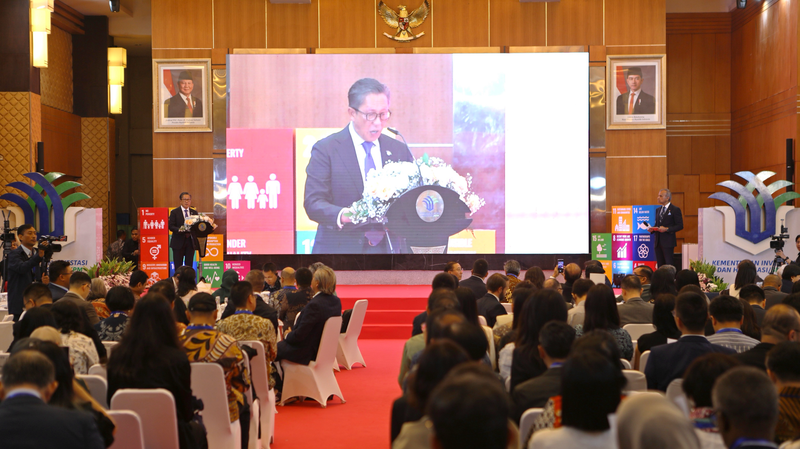Jakarta – From Sunday to Tuesday, Indonesia hosted the first Global Business Summit on Belt and Road Infrastructure Investment for Better Business, Better World, and Sustainable Development Goals, marking a new chapter in global collaboration. The event, co-organized by the Government of Indonesia and the United Nations Global Compact (UNGC) BRI Action Platform, drew over 300 participants across governments, businesses, international organizations, academia, and NGOs.
In a keynote video address, UN Under-Secretary-General for Economic and Social Affairs Li Junhua underscored the need for sustainable infrastructure that is low-carbon, climate-resilient, and universally accessible. "This includes developing integrated transport systems designed to reduce climate emissions, enhance social inclusion, and bolster regional economic integration," he said.
Highlighting this vision, the summit unveiled nine pilot projects aimed at translating high-quality Belt and Road Initiative development into real-world impact. The initiatives will focus on low-carbon transport, climate-resilient infrastructure and social inclusion—core pillars for achieving the Sustainable Development Goals. Detailed plans for each project are expected to roll out in the coming weeks.
For young entrepreneurs and tech enthusiasts, these pilot projects present a front-row seat to the future of emerging markets. Analysts point out that aligning infrastructure investment with SDGs not only drives green innovation but also opens doors for startups and investors seeking growth in resilient economies.
Thought leaders at the summit stressed the importance of data-driven monitoring and inclusive governance to ensure projects deliver tangible benefits. By fostering multilateral cooperation, stakeholders aim to set a blueprint for sustainable, integrated development that bridges borders and cultures.
As the global infrastructure landscape evolves, Jakarta's summit demonstrated how strategic partnerships and a shared commitment to sustainability can pave the way for a more interconnected, climate-friendly world.
Reference(s):
cgtn.com




